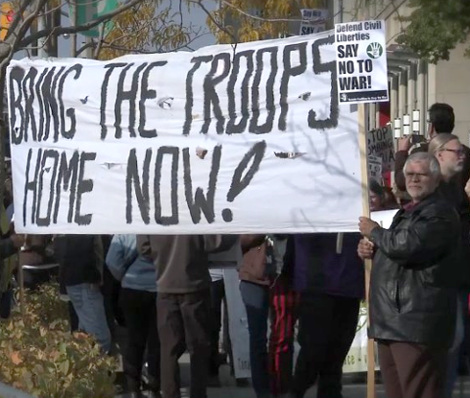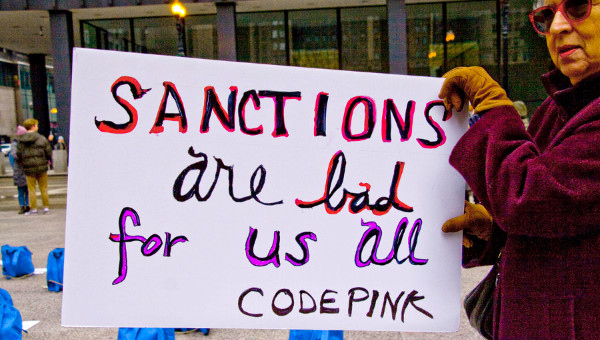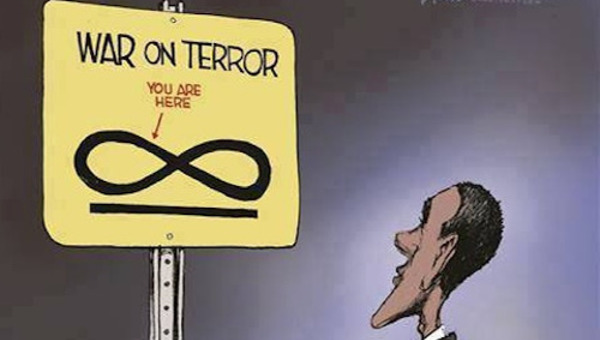The Harper government’s plan to send Canadian air power to help combat the Islamic State (IS) in Iraq, and possibly Syria, and for Canadian special forces to continue operating there is homicidal, won’t achieve its supposed goals and needs to be opposed. Legislation tabled by the federal government on October 3 says that “unless confronted with strong and direct force, the threat ISIL poses to international peace and security, including to Canadian communities, will continue to grow.” There is plenty of evidence to suggest that exactly the opposite is true.

Moreover, there had previously been a split between IS and al-Nusra, the al-Qaeda affiliate in Syria, but the two groups have reconciled in the face of the west’s bombing of Syria, which will strengthen both groups and sectarian jihadism more generally.
To say that western states should not be bombing Iraq and Syria is not isolationism and neither does it indicate indifference to the thousands in Iraq and Syria that IS has slaughtered, raped, assaulted and ethnically cleansed. Rather, this position is the only tenable one for people concerned with the inhabitants of the region.
Political Alternatives?
Many approaches to fighting IS are likely to be more effective than western bombing are available. “Vijay Prashad, a professor at Trinity College in Connecticut, points out that the United States can, ‘urge the former Syrian Contact Group – Egypt, Iran, Turkey and Saudi Arabia – to conceive a regional strategy to de-escalate the war in Syria, urge a unity government in Iraq and put pressure on Turkey to cease its open door policy for international jihadis,’” notes the Middle East Eye.
Institute for Policy Studies’ Phillis Bennis similarly suggests that the West could play a constructive role by establishing a comprehensive arms embargo “pressuring U.S. ally Saudi Arabia to stop arming and financing IS and other extremist fighters,” and drastically increasing “humanitarian contributions to UN agencies for the now millions of refugees and [internally displaced persons] in and from both Syria and Iraq.”
Palestinian journalist Mouin Rabbani also argues that IS can be defeated if “political transition [is] actively pursued, not only in Syria … but equally in Iraq” and that “the emergence of institutions enjoying sufficient popular – and not necessarily electoral – legitimacy can address deep-seated grievances and peacefully resolve the conflicts that allow movements such as the IS to thrive.”
If the Canadian government had any interest in, as its motion claims, “protect[ing] the vulnerable and innocent civilians of the region” it would not be ordering airstrikes. Bombing kills the very civilians that the west’s humanitarian warriors say they want to protect. On September 23, Syrian activists reported that U.S.-led airstrikes killed 11 civilians. And on September 29, U.S.-led raids hit grain silos in Syria, killing further civilians. Attacks such as these demonstrate that the West’s airstrikes are not only unlikely to stop IS’s crimes, but that the airstrikes are themselves crimes.
Furthermore, the Obama administration has signaled its willingness to knowingly kill large numbers of civilians by stating that in its bombing of Iraq and Syria it will exempt itself from the measures it allegedly takes to avoid killing civilians in its drone assassination campaign, a terrifying thought given that the latter has in its own right been an exercise in international mass murder.
Collective Amnesia
To believe that western countries are bombing Iraq and Syria to save the populations of those countries requires breathtaking naiveté, willful blindness, a staggeringly short memory or all of these. It requires forgetting virtually all of post-9/11 relations between the West and the Middle East, to say nothing of the longer-term trend of U.S. foreign policy being driven by the economic interests of its ruling class.
It requires looking at what the West has done to the people of Afghanistan, to Iraq and Libya, Pakistan, Palestine, Somalia and Yemen, and still believing that western policy in the region is motivated by either humanitarianism or a genuine desire to combat religious extremism rather than, as David Mizner argues, “amassing wealth.”
In view of Western policy in each of those countries, the question that should be asked is: who will “protect the vulnerable and innocent civilians of the region” from the U.S. and its allies who have wrought more death and destruction there than IS could in its most outlandish fantasies?
John Baird has said that Canada should prepare to be in the fight against IS for the long haul. The Obama administration has said the same. If this happens, civilians in Iraq and Syria will be killed and wounded by the thousands and Western airstrikes against Sunni targets will quite naturally increase sectarian sentiment in Iraq and Syria. If IS is miraculously defeated by the West’s strategy another similar group will emerge to take its place unless the conditions that have allowed it to foment, western imperialism being chief among them, are addressed.
Conservative sweethearts in the weapons industry will enjoy another boondoggle on the order of hundreds of millions, if not billions, and the rest of the people living within the borders of the Canadian state will be told there’s not enough money for social services and infrastructure.
To prevent these developments, Canada will need a broad-based, daring, thoughtful, anti-war movement that extends beyond the confines of the already active Left. •
This article first appeared on Rabble.





